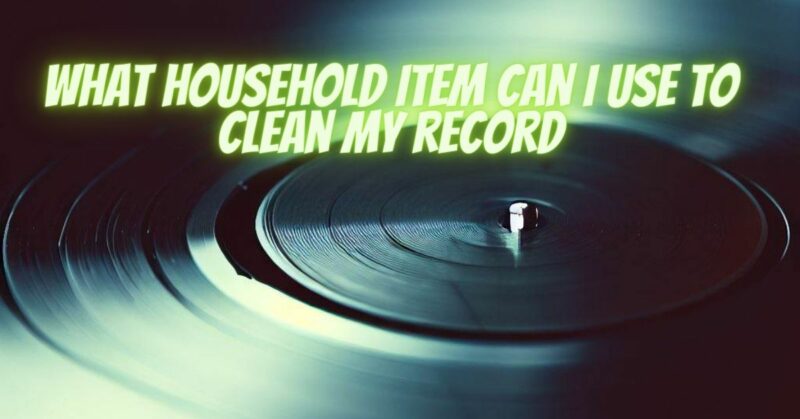When it comes to cleaning vinyl records, it is essential to use safe and effective methods to preserve their sound quality. While dedicated record cleaning solutions and tools are recommended, there is a household item that can be used for basic cleaning: distilled water. In this article, we will explore how distilled water can be used to clean vinyl records, offering a convenient and affordable solution for maintaining your cherished collection.
Why Distilled Water?
Distilled water is free from impurities, minerals, and additives commonly found in tap water or other household cleaning agents. These impurities can harm vinyl records or leave behind residues that affect sound quality. Distilled water provides a gentle and safe cleaning option that minimizes the risk of damage.
Cleaning Process:
- Gather the necessary supplies: distilled water, a clean microfiber cloth, a bowl or basin, and a dry microfiber cloth.
- Prepare the cleaning area: Find a clean and flat surface to work on, preferably covered with a soft, lint-free cloth or microfiber towel to protect the record.
- Fill a bowl or basin with distilled water: Ensure the bowl or basin is clean and free from any contaminants.
- Wet the cleaning cloth: Moisten a clean microfiber cloth with distilled water. Be sure to wring out any excess water to avoid oversaturating the record.
- Clean the record: Place the record on the prepared surface and gently wipe the moistened cloth along the grooves of the record. Use a circular motion to remove dirt and dust. Take care not to apply excessive pressure or introduce more dirt to the surface.
- Dry the record: After cleaning, use a dry microfiber cloth to remove any remaining moisture from the record. Ensure the record is completely dry before playing or storing it to prevent potential damage or mold growth.
Note: It is crucial to let the record air dry completely to avoid trapping moisture between the grooves.
Benefits and Limitations:
Using distilled water for basic record cleaning offers several benefits:
- Safety: Distilled water is safe to use and does not introduce harmful substances to the record surface.
- Accessibility: Distilled water is readily available in most stores or can be easily obtained through home distillation methods.
- Affordability: Distilled water is an economical solution for basic record cleaning, particularly when compared to specialized cleaning solutions.
However, it is important to acknowledge the limitations of using distilled water for cleaning:
- Stubborn Stains: Distilled water may not effectively remove stubborn stains or deeply embedded dirt from records.
- Thoroughness: Basic cleaning with distilled water may not provide the same level of deep cleaning as dedicated record cleaning solutions or machines.
Conclusion:
Distilled water offers a convenient and affordable solution for basic vinyl record cleaning. Its purity and lack of impurities make it a safe option for removing surface dirt and dust. While it may not address more stubborn stains or deeply embedded contaminants, using distilled water as a regular maintenance method can help preserve the sound quality and longevity of your vinyl records.
Remember, for more thorough cleaning or when dealing with valuable or delicate records, it is advisable to invest in dedicated record cleaning solutions and tools. By incorporating safe and effective cleaning practices, you can enjoy your vinyl collection to its fullest potential.


